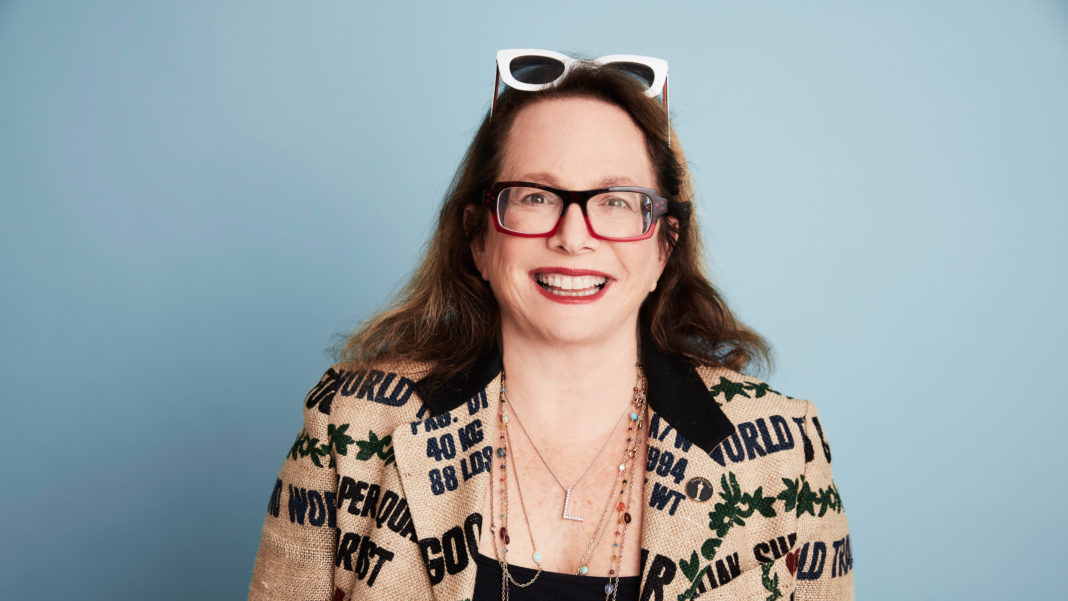Composer Laura Karpman once said the best advice she ever received was “Sit at the table – even if there isn’t a chair.” Now that she’s joined the Academy of Motion Picture Arts and Sciences (in 2015) and then was added to the Academy’s Board of Governors in 2016, she has much more than a chair – she has a voice.
Karpman is a four-time Emmy winner. She has written the scores for such films as Step, Paris Can Wait and Step Sisters. She is the composer of Ask Your Mama – a multi-media setting of the poems of Langston Hughes. When the Academy decided to put together The Oscar® Concert, tied to this weekend’s 90th Academy Awards, it was no surprise that Karpman was included as one of its three curators. The other two are composers Michael Giacchino (Up and Rogue One: A Star Wars Story) and Charles Bernstein (A Nightmare on Elm Street and Cujo.)
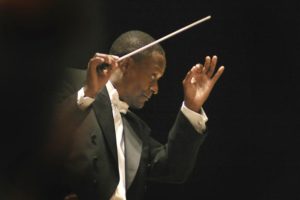
The concert on Wednesday night is presented in conjunction with the LA Philharmonic and takes place at Walt Disney Concert Hall. Thomas Wilkins is conducting. Special guests include many of the composers and filmmakers from the featured films.
There are two purposes for the concert: the first is to celebrate the five scores nominated for the Oscar for Best Original Score (go here to see the nominees) this year. The other is to look at the diverse history of music and composers who have scored some of Hollywood’s greatest movies.
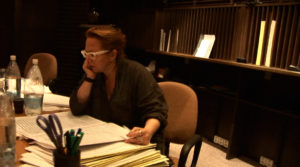
I recently spoke with Karpman about the concert and her goals moving forward for women composers in the film industry.
This concert seems like a no-brainer tie-in with the awards. Why did it take so long for something like this to be realized?
It did happen a few years ago. [2014 – at UCLA’s Royce Hall.] Charles Fox, who was then Governor, is the one who made it happen. The 90th anniversary of the Academy Awards was a perfect time to revive the concept. This idea of what is the past, the present and the future of film scoring. And then there’s this incredible partnership with the Los Angeles Philharmonic – which I hope will be ongoing. I think this is something we can do and do more of.
The scores chosen to represent the history of scoring range from Korngold’s 80-year-old score for The Adventures of Robin Hood to Joe Hisaishi’s score for the animated film Spirited Away. How were the scores selected?
We have these organizing principles, what is the sound of love? What is the sound of home? What is the sound of fear? There was a lot of back and forth. We threw out an initial list that got morphed and changed. It was a really fantastic process where we sat together and we looked at nominated scores. It was really a beautiful process of going through our favorite scores, and my colleagues Michael and Charles are so knowledgeable, and looking at this organizing principle, what does something like that? We wanted to find some things that were not as obvious. We wanted to show different things. There is so much that is so great. There are so many people working and such a diversity in our community.
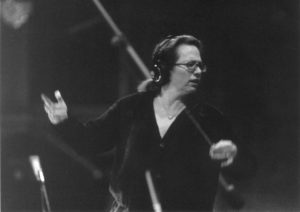
Of the 22 pieces scheduled to be performed, only two are by women. [Rachel Portman’s music from Nicholas Nickelby and Mica Levi’s music from Jackie.] What’s the state of women composers in the business and why are there only two compositions by women included?
When I got to the Academy in 2015, I was the third woman composer in our branch. We now have 14 two years later. We are growing that every year. We have a fabulous and vibrant community of women composers. We aren’t getting on top projects, which is why you don’t see women as half the composers. It’s very tough out there. That’s part of the conversation. Be sure that with me there, and me there as a curator, we did our best to include as much diversity as possible.
You once quoted a statistic that when films had one female director, 12% of those films were scored by women. On films with male directors only 2% were scored by women. How difficult is this path for women composers?
Every year those figures change. Dr. Martha Lauzen* issues a new survey every year. I don’t know what they are this year. When women are directing a film you see a better representation of women below the line. Then you get a Ryan Coogler who hired a woman production designer, a woman cinematographer and a woman editor [for Black Panther.]
My career, up until recently, was all guys. Now I work with more women which is great. We’re really all trying to help the filmmaker realize his or her vision. I am beginning to think, like in all things, having a diversity of apertures, having a diversity of viewpoints, does nothing but help a movie.
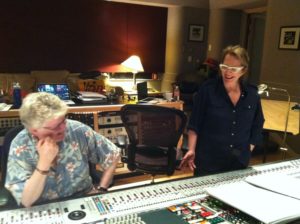
During the most recent Grammy Awards, Neil Portnow, the head of the Recording Academy, made some tone-deaf comments about women having to “step up.” Is it any better for women in the film industry?
You and I are having a conversation about this that is open and I’m comfortable talking about it and that’s a transition. I’ve been doing this for 25 years and there have been times when I wasn’t safe doing this conversation. Now I do. I hope that’s not naïve. But I don’t think it is.
One of the great things about being part of the Board of Governors is I can really connect with female cinematographers and production designers and sound mixers. We can collaborate and talk about stories, the similarities, the differences and what we see out there. It’s really a significant connection that’s being made. It’s an amazing time to be in leadership in the Academy.
What difference has having a chair at the table made for you?
I never had it. This is all new to me. I hope I’m using it wisely. I know I am. I’m working very hard to make sure that not only are we bringing more women into the music branch – that’s part of the Academy mandate – but also making sure there are opportunities for all of us. I don’t want this to be a discussion in ten years. We don’t want to talk about it anymore. We need it to go away. We want to fix it now and the next generation needs to be free of this and make their art. I do have a seat. I got my way in. I have to keep marching on and I’m very much enjoying and feeling productive in that leadership.
*Women comprised 3% of composers working on the top 250 grossing films of 2017. This represents no change from 2016. 98% of films had no female composers in 2017. – From The Celluloid Ceiling – Behind-the-Scenes Employment of Women on the Top 100, 250, and 500 Films of 2017 by Martha M. Lauzen, Ph.D.










